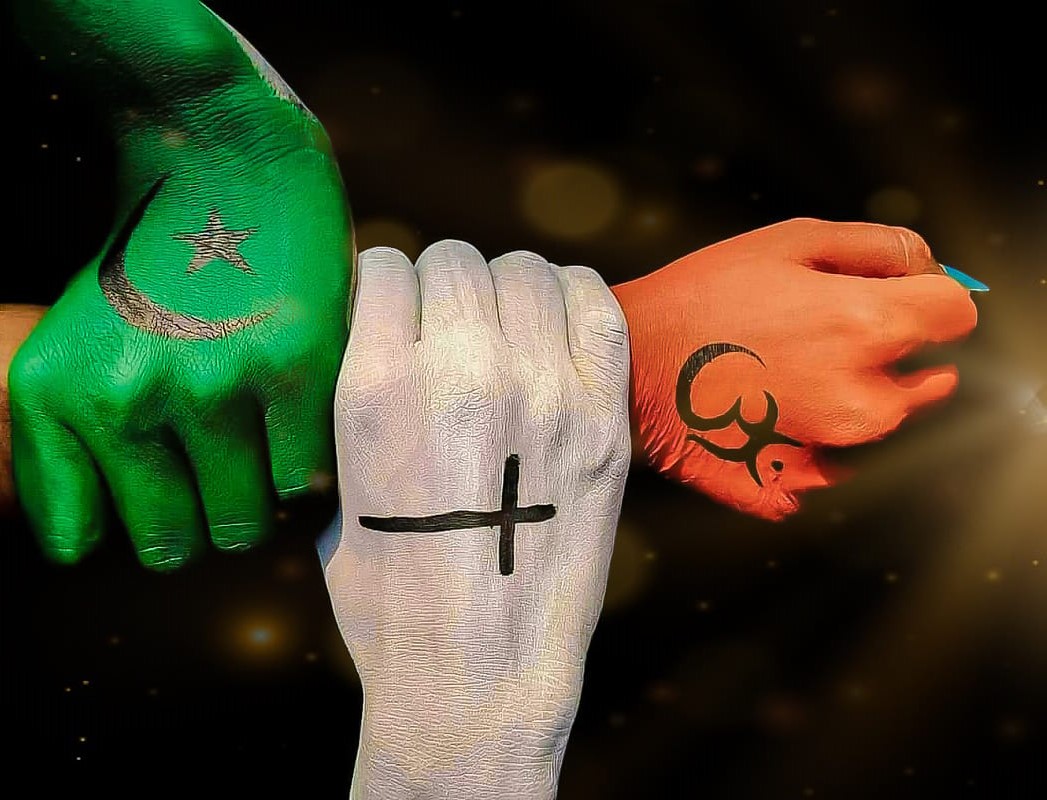Hinduism vs Islam vs Christianity: Beliefs, Practices & Global Perspectives (2025)
Published: June 2025 | Category: Religion & Society.
In 2025, the world's three largest religions—Hinduism, Islam, and Christianity—continue to shape the lives, cultures, and identities of billions. While each of these religions has a unique history and spiritual framework, they also share values like peace, compassion, and the pursuit of truth. This article offers a respectful comparison of their core beliefs, sacred texts, rituals, and global impact.
1. Historical Origins
Hinduism is one of the world’s oldest religions, originating in the Indian subcontinent over 4,000 years ago. It is often seen as a collection of diverse philosophies and practices.
Islam emerged in the 7th century CE in Mecca (modern-day Saudi Arabia), with Prophet Muhammad regarded as the final messenger of God (Allah).
Christianity began in the 1st century CE in the Middle East, based on the life and teachings of Jesus Christ, whom followers believe to be the Son of God and Savior.
2. Core Beliefs
- Hinduism: Belief in Brahman (universal spirit), karma, dharma, moksha (liberation), and reincarnation.
- Islam: Belief in one God (Allah), the Five Pillars of Islam, and the prophethood of Muhammad.
- Christianity: Belief in one God, the Holy Trinity (Father, Son, Holy Spirit), salvation through Jesus Christ, and eternal life.
3. Sacred Texts
- Hinduism: Vedas, Upanishads, Bhagavad Gita, Ramayana, Mahabharata
- Islam: Quran (holy book), Hadith (sayings of Prophet Muhammad)
- Christianity: Bible (Old Testament and New Testament)
- Hinduism: Om (ॐ), lotus, sacred cow, yoga, vegetarianism
- Islam: Crescent moon, star, hijab, fasting, halal practices
- Christianity: Cross, rosary, baptism, Bible reading, church service
- Faith in a higher power
- Ethical living and compassion
- Charity and helping the poor
- Prayer and connection with the divine
4. Worship & Rituals
Hindus worship in temples or at home through rituals called puja. Prayer, meditation, and festivals like Diwali and Holi are central. Muslims pray five times a day facing Mecca, observe Ramadan, and gather in mosques for community prayers. Christians worship in churches through prayer, hymns, and sacraments such as baptism and communion. Christmas and Easter are key celebrations.
5. Symbols and Practices
6. Similarities
Despite their differences, all three religions emphasize:
7. Differences
While Hinduism is polytheistic or monistic depending on interpretation, Islam and Christianity are strictly monotheistic. Islam and Christianity are Abrahamic faiths with linear views of life and the afterlife, while Hinduism has cyclical beliefs (reincarnation).
8. Global Influence in 2025
In 2025, these religions continue to influence politics, education, ethics, and social structures worldwide. Interfaith dialogue has become essential to foster peace and understanding in an increasingly globalized world.
9. Respectful Coexistence
While theological differences exist, mutual respect and learning can lead to deeper understanding. Social media, education, and cultural exchanges are encouraging interfaith harmony.
Conclusion
Hinduism, Islam, and Christianity each offer unique insights into the nature of life, purpose, and spirituality. Understanding their differences—and their common ground—helps build a more compassionate and united world. In 2025 and beyond, it’s vital to move from tolerance to **mutual respect and learning**. Connect with us via our contact page for daily updates.
Tags: #Hinduism #Islam #Christianity #ReligionComparison #FaithAndCulture #GlobalReligion2025

Leave a Comment